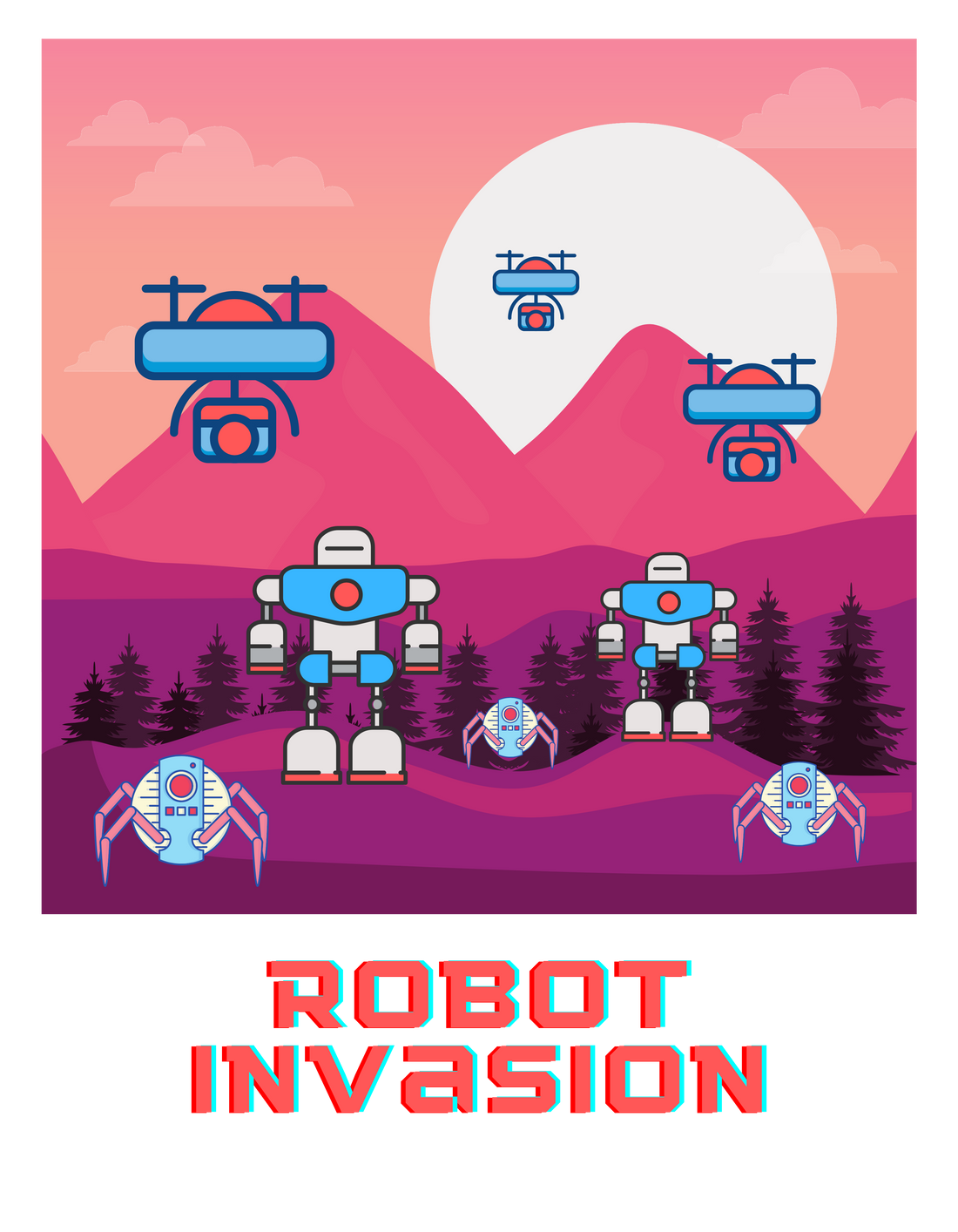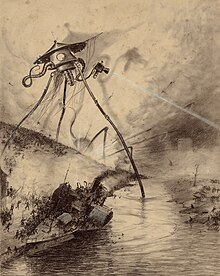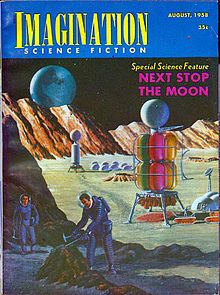
What is Science fiction?
Share
What is Science fiction?

Science fiction (sometimes shortened to sci-fi or SF) is a genre of speculative fiction which typically deals with imaginative and futuristic concepts such as advanced science and technology, space exploration, time travel, parallel universes, and extraterrestrial life. It has been called the "literature of ideas", and it often explores the potential consequences of scientific, social, and technological innovations.[1][2]
Science fiction can trace its roots back to ancient mythology,[3] and is related to fantasy, horror, and superhero fiction, and contains many subgenres. Its exact definition has long been disputed among authors, critics, scholars, and readers.
Science fiction, in literature, film, television, and other media, has become popular and influential over much of the world, and it is also often said to inspire a "sense of wonder".[4] Besides providing entertainment, it can also criticize present-day society and explore alternatives.
Definitions[edit]
American science fiction author and editor Lester del Rey wrote, "Even the devoted aficionado or fan—has a hard time trying to explain what science fiction is," and the lack of a "full satisfactory definition" is because "there are no easily delineated limits to science fiction."[5] According to Isaac Asimov, "Science fiction can be defined as that branch of literature which deals with the reaction of human beings to changes in science and technology."[6] Robert A. Heinlein wrote that "A handy short definition of almost all science fiction might read: realistic speculation about possible future events, based solidly on adequate knowledge of the real world, past and present, and on a thorough understanding of the nature and significance of the scientific method."[7]
Part of the reason that it is so difficult to pin down an agreed definition of science fiction is because there is a tendency among science fiction enthusiasts to act as their own arbiter in deciding what exactly constitutes science fiction.[8] Damon Knight summed up the difficulty, saying "science fiction is what we point to when we say it."[9] Ultimately, it may be more useful to talk around science fiction as the intersection of other, more concrete, genres and subgenres.[10]
Alternative terms[edit]
Forrest J Ackerman is credited with first using the term "sci-fi" (analogous to the then-trendy "hi-fi") in about 1954.[11] As science fiction entered popular culture, writers and fans active in the field came to associate the term with low-budget, low-tech "B-movies," and with low-quality pulp science fiction.[12][13][14] By the 1970s, critics within the field, such as Damon Knight and Terry Carr, were using "sci fi" to distinguish hack-work from serious science fiction.[15] Peter Nicholls writes that "SF" (or "sf") is "the preferred abbreviation within the community of sf writers and readers."[16] Robert Heinlein found even "science fiction" insufficient for certain types of works in this genre, and suggested the term speculative fiction to be used instead for those that are more "serious" or "thoughtful."[17]
Some scholars assert that science fiction had its beginnings in ancient times, when the line between myth and fact was blurred.[18] Written in the 2nd century CE by the satirist Lucian, A True Story contains many themes and tropes characteristic of modern science fiction, including travel to other worlds, extraterrestrial lifeforms, interplanetary warfare, and artificial life. Some consider it the first science-fiction novel.[19] Some of the stories from The Arabian Nights,[20][21] along with the 10th-century The Tale of the Bamboo Cutter[21] and Ibn al-Nafis's 13th-century Theologus Autodidactus,[22] also contain elements of science fiction.
Written during the Scientific Revolution and the Age of Enlightenment, Johannes Kepler's Somnium (1634), Francis Bacon's New Atlantis (1627),[23] Athanasius Kircher's Itinerarium extaticum (1656),[24] Cyrano de Bergerac's Comical History of the States and Empires of the Moon (1657) and The States and Empires of the Sun (1662), Margaret Cavendish's "The Blazing World" (1666),[25][26][27][28] Jonathan Swift's Gulliver's Travels (1726), Ludvig Holberg's Nicolai Klimii Iter Subterraneum (1741) and Voltaire's Micromégas (1752) are regarded as some of the first true science-fantasy works.[29][30] Isaac Asimov and Carl Sagan considered Somnium the first science-fiction story; it depicts a journey to the Moon and how the Earth's motion is seen from there.[31][32]
History
Following the 17th-century development of the novel as a literary form, Mary Shelley's Frankenstein (1818) and The Last Man (1826) helped define the form of the science-fiction novel. Brian Aldiss has argued that Frankenstein was the first work of science fiction.[33][34] Edgar Allan Poe wrote several stories considered to be science fiction, including "The Unparalleled Adventure of One Hans Pfaall" (1835) which featured a trip to the Moon.[35][36] Jules Verne was noted for his attention to detail and scientific accuracy, especially in Twenty Thousand Leagues Under the Sea (1870).[37][38][39][40] In 1887, the novel El anacronópete by Spanish author Enrique Gaspar y Rimbau introduced the first time machine.[41][42]

